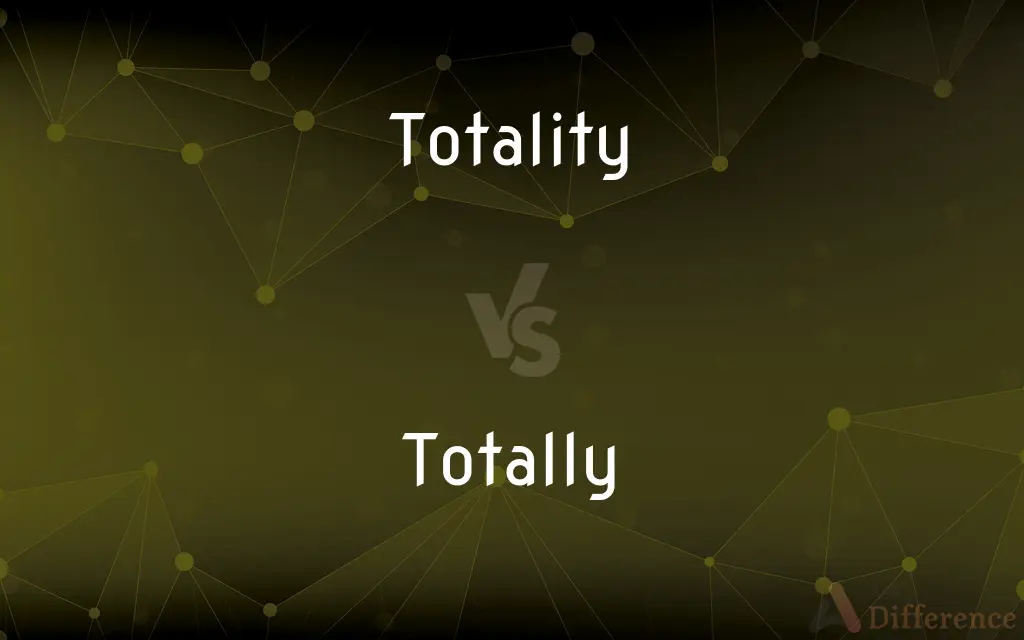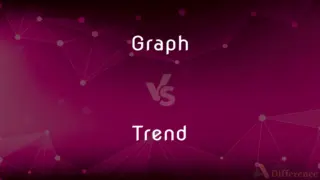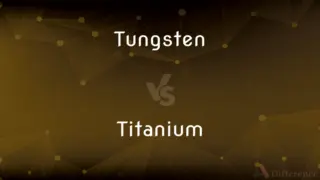Totality vs. Totally — What's the Difference?
Edited by Tayyaba Rehman — By Maham Liaqat — Updated on April 8, 2024
Totality refers to the whole amount or entirety of something, focusing on completeness, while totally is an adverb emphasizing the extent or degree to which something is complete or absolute.

Difference Between Totality and Totally
Table of Contents
ADVERTISEMENT
Key Differences
Totality encompasses the entire amount, extent, or number of something, highlighting its completeness or wholeness. It is often used in contexts that discuss the entirety of a situation, concept, or physical quantity. On the other hand, totally is used to describe the extent or degree to which something is complete, absolute, or in total agreement. It modifies verbs, adjectives, and other adverbs, indicating completeness or fullness in a qualitative sense.
Totality is a noun, serving as the subject or object in a sentence, focusing on the concept of wholeness or entirety. For example, "The totality of evidence was overwhelming." Whereas totally is an adverb, modifying actions, conditions, or other adverbs, emphasizing completeness, as in, "She was totally convinced by his argument."
In the realm of science, especially in astronomy, totality has a specific meaning, referring to the period during an eclipse when the eclipsed body is completely obscured. On the other hand, totally, being versatile in its application, does not have a specialized scientific meaning but enhances the degree of absolutes in statements about observations, results, or feelings.
Totality can also imply a sum of parts, suggesting a comprehensive or holistic view, as in considering the totality of a person's life or work. Conversely, totally often suggests an absolute state or condition without regard to individual components, such as being totally satisfied or totally dark.
In legal or formal documents, totality is used to refer to the whole of something in a comprehensive, often quantifiable, manner. Meanwhile, totally finds its use in more informal or conversational contexts, reinforcing the strength or unambiguity of a statement or opinion.
ADVERTISEMENT
Comparison Chart
Part of Speech
Noun
Adverb
Context of Use
Entire amount, extent, or number
Extent or degree of completeness
Example Usage
"The totality of the circumstances..."
"She was totally unaware of the situation."
Specialized Meanings
In astronomy, the period of total eclipse
No specialized meanings
Implication
Suggests a sum of parts, a holistic view
Indicates an absolute state or condition
Compare with Definitions
Totality
The entire amount or extent of something.
The totality of her assets was impressive.
Totally
To the full extent or degree.
The movie was totally awesome.
Totality
In astronomy, the period of total eclipse.
We traveled to experience the totality of the solar eclipse.
Totally
Completely or entirely.
I am totally convinced of your innocence.
Totality
The sum of all parts.
The totality of the evidence supported the theory.
Totally
In a total manner; without reservation.
He totally accepts the responsibility for the mistake.
Totality
A holistic or comprehensive view.
The report examined the totality of the healthcare system.
Totally
Absolutely; unequivocally.
She was totally unaware of the changes.
Totality
The state of being complete or whole.
He sought to understand the painting in its totality.
Totally
With everything included; wholly.
They were totally committed to the project.
Totality
The quality or state of being total
Appalled by the totality of the destruction.
Totally
Completely; absolutely
The building was totally destroyed by the fire
They came from totally different backgrounds
She's almost totally deaf
Some of the lyrics are totally brilliant
Totality
An aggregate amount; a sum.
Totally
Entirely; wholly; completely.
Totality
The phase of an eclipse when it is total.
Totally
To the fullest extent or degree.
They've totally demolished the bank on Main Street.
Totality
The state of being total.
Totally
Very; extremely.
That was totally wicked!
Totality
An aggregate quantity obtained by addition.
Totally
Definitely; for sure.
That was totally not what happened.
Totality
(astronomy) The phase of an eclipse when it is total.
Totally
In a total manner; wholly; entirely.
Totality
The quality or state of being total; as, the totality of an eclipse.
Totally
To a complete degree or to the full or entire extent (`whole' is often used informally for `wholly');
He was wholly convinced
Entirely satisfied with the meal
It was completely different from what we expected
Was completely at fault
A totally new situation
The directions were all wrong
It was not altogether her fault
An altogether new approach
A whole new idea
Totality
The whole sum; the whole quantity or amount; the entirety; as, the totality of human knowledge.
The totality of a sentence or passage.
Totality
The state of being total;
Appalled by the totality of the destruction
Totality
The quality of being complete and indiscriminate;
The totality of war and its consequences
The all-embracing totality of the state
Totality
The whole amount
Common Curiosities
What is the difference between totality and totally?
Totality is a noun referring to the complete amount or extent of something, whereas totally is an adverb emphasizing the degree to which something is complete or absolute.
Can totality and totally be used interchangeably?
No, because totality is a noun and totally is an adverb; they serve different grammatical purposes.
Can totality refer to non-physical concepts?
Yes, totality can also refer to abstract concepts or holistic views of situations or ideas.
Is the usage of totality common in legal documents?
Yes, totality is often used in legal and formal documents to refer comprehensively to all aspects of a case or situation.
What does totality imply in philosophical contexts?
In philosophy, totality may imply a comprehensive or all-encompassing nature of reality or concepts.
Is totally always used in informal contexts?
Mostly, yes. Totally tends to appear in more conversational or informal contexts, though it can be used in formal writing to emphasize a point.
How does totality apply in scientific contexts?
In astronomy, totality refers specifically to the period during an eclipse when the eclipsed body is completely obscured.
Can totally express agreement?
Yes, totally can be used to express strong agreement or affirmation.
Does totally change the meaning of a sentence?
Totally can significantly change the emphasis or meaning of a sentence by indicating complete or absolute status.
Is it appropriate to use totally in academic writing?
It depends on the context and the tone of the writing; totally can be used for emphasis but may be too informal for some academic contexts.
How does the meaning of totality differ in art and literature?
In art and literature, totality may refer to the comprehensive qualities or thematic unity of a work.
Can totally modify any part of speech?
Totally primarily modifies verbs, adjectives, and other adverbs, but it cannot modify nouns.
Can the concept of totality be applied to personal experiences?
Yes, one can discuss the totality of personal experiences to mean the whole or entirety of those experiences.
Is totality a quantitative or qualitative concept?
Totality can be both quantitative, referring to the numerical whole, and qualitative, implying a comprehensive or holistic nature.
How do totality and totally differ in terms of implication?
Totality implies a holistic or comprehensive view, focusing on the sum of parts, while totally emphasizes an absolute condition or state without regard to components.
Share Your Discovery

Previous Comparison
Graph vs. Trend
Next Comparison
Tungsten vs. TitaniumAuthor Spotlight
Written by
Maham LiaqatEdited by
Tayyaba RehmanTayyaba Rehman is a distinguished writer, currently serving as a primary contributor to askdifference.com. As a researcher in semantics and etymology, Tayyaba's passion for the complexity of languages and their distinctions has found a perfect home on the platform. Tayyaba delves into the intricacies of language, distinguishing between commonly confused words and phrases, thereby providing clarity for readers worldwide.
















































